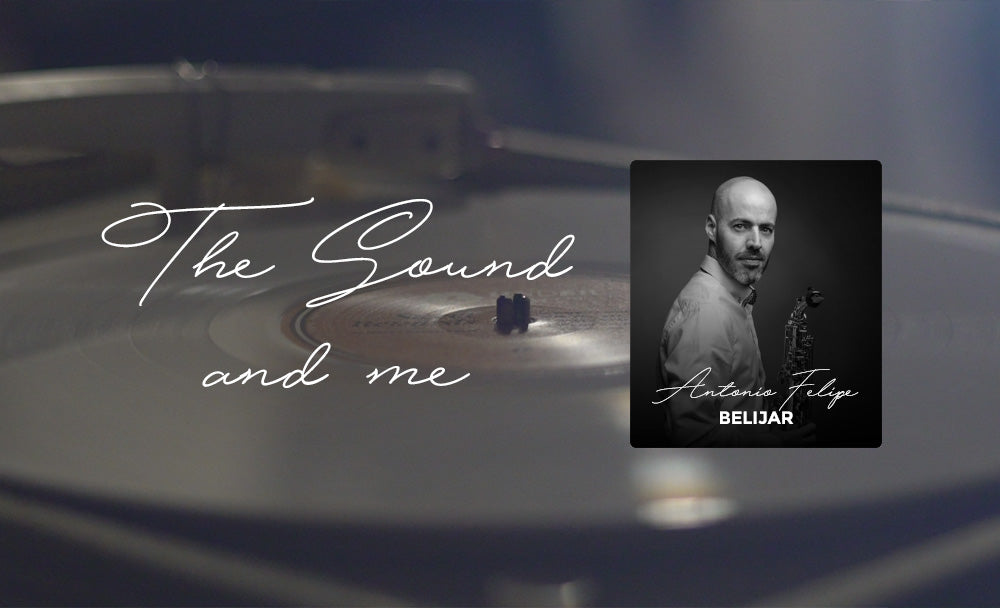'The Sound and me' #01 with Antonio Felipe Belijar

For this first episode of our series, discover Spanish saxophonist Antonio Felipe Belijar's experience, for whom the sound is the means to make feelings and ideas travel…
An invitation to travel
"In my opinion, the sound is the means by which travel the feelings and ideas we wish to convey to the public. Sound is not just about timbre, but about the conjunction of multiple parameters that must be managed simultaneously, such as the attack, the intonation, mastering the instrument in the intervals, the different registers and nuances.
For example, let's imagine that in the mezzo forte, over a long value, I am looking for the most powerful, round or perfect tone possible. But that with this sound, I am not capable of attacking in the low register in a subtle way. Then this sound doesn't work for me, because I can't use it as this boat that carries feelings and ideas...
Sound has to be flexible. We have to be able to achieve a tone consistency by playing piano, forte, staccato, legato, in the high and low register, in any case. We must therefore find a stable tone that allows us to obtain homogeneity in all situations."
A suit
"Another idea that comes to me about sound is that it's not one invariable thing.
I often hear, "How I like the sound of such a person or such a saxophonist!" and I say to myself, "So the sound would be a unique, fixed thing?".
It's like a suit. Let's imagine a fantastic suit which fits me very well, and in which I look great. I am wearing that suit at a wedding. All right, perfect. But the next day, I wear the same suit to a party with friends. In one situation it's an appropriate outfit, in the other, it's not. The suit is the same, but the context is different. It's as if we were actors, actors of the music. Our face, our costume, our body must vary to adapt to the role we are going to play. For the sound it's exactly the same."
Different works, different sounds
"When I think of works such as Paul Creston's Sonata, to quote a very famous work, I imagine the American saxophone, very robust, with a powerful sound, with an ample and fast vibrato.
When I think of Larsson's Concerto, I imagine the Nordic saxophone. A somewhat similar timbre, but something warmer and with a lot of vibrato, a 'warmer' vibrato, a bit slower.
When I think of Tableaux de Provence by Paule Maurice, I imagine the traditional French saxophone, more refined, more stable, a sound perhaps a little more delicate, more elegant.
When I think of Denisov, it's an even more subtle sound, without vibrato, a sharper and cleaner attack. We would go even further if we mentioned the interpretation of Berio's Sequenza IXb, for example, for alto saxophone. Thus, a sound can be very beautiful only in certain situations. Imagine the sound appropriate for the Paul Creston Sonata used in Berio's Sequenza IXb, with a powerful sound, a large vibrato and a lot of timbre. That would be a mistake, just like the beautiful suit we would wear to do sport.»
Like a chameleon
"So the sound is not an invariable, a unique thing. I like the idea that my sound changes according to each type of music, or adapts to the different passages of a work, like the actor who changes face according to the role he plays.
That's why it's essential for me to be able to be like a chameleon. To embody different people, different sounds. To always be able to master the different technical aspects like articulation, intonation, stability over the entire duration of the note, stability of tone in the forte and pianissimo…
Beyond the idea of playing a note, and whether that note has an absolutely wonderful tone or not, I am constantly striving for excellence in all parameters. That's why I looked for the saxophones that gave me a solid base, a beautiful timbre, but at the same time which allowed me to play the different 'angel and demon' aspects of the sound…"
Do not hesitate to subscribe to our Facebook publications so that you don't miss the next episodes with Nicolas Arsenijevic, Joshua Hyde, Timothy McAllister, Branford Marsalis, Rosario Giuliani, Vincent Lê Quang, Baptiste Herbin…
► Learn more about Antonio Felipe Belijar
► Follow our Facebook Page